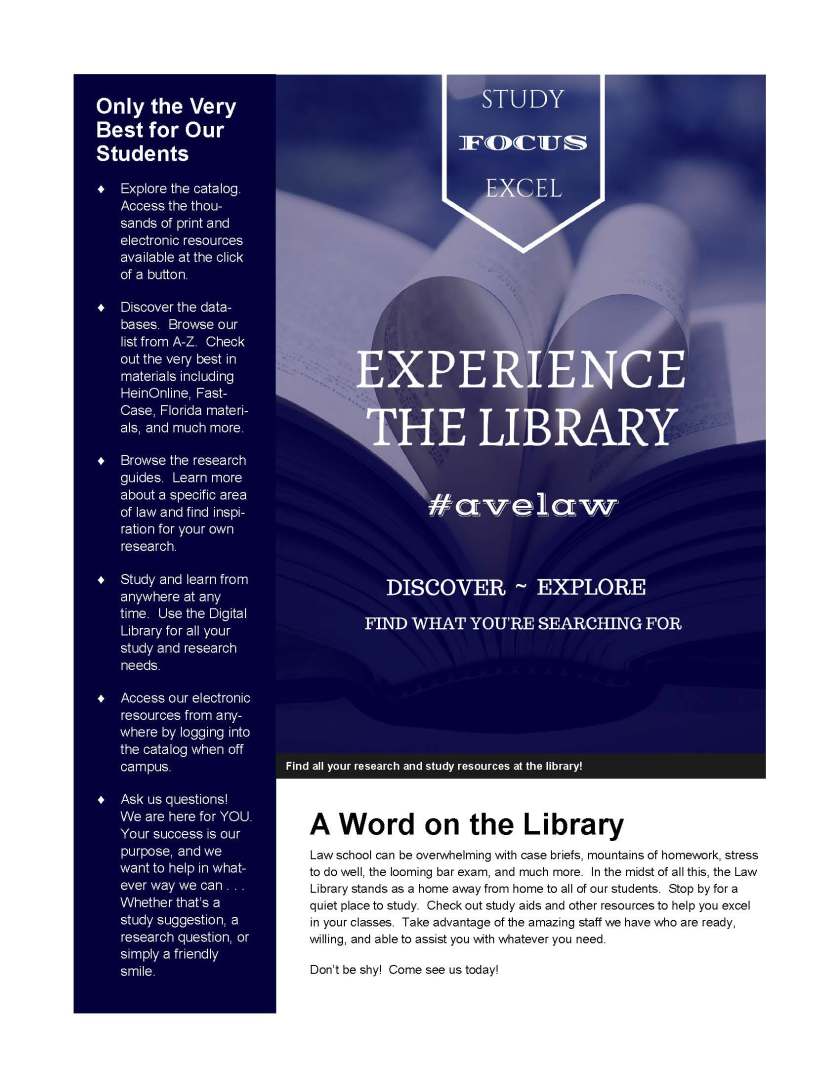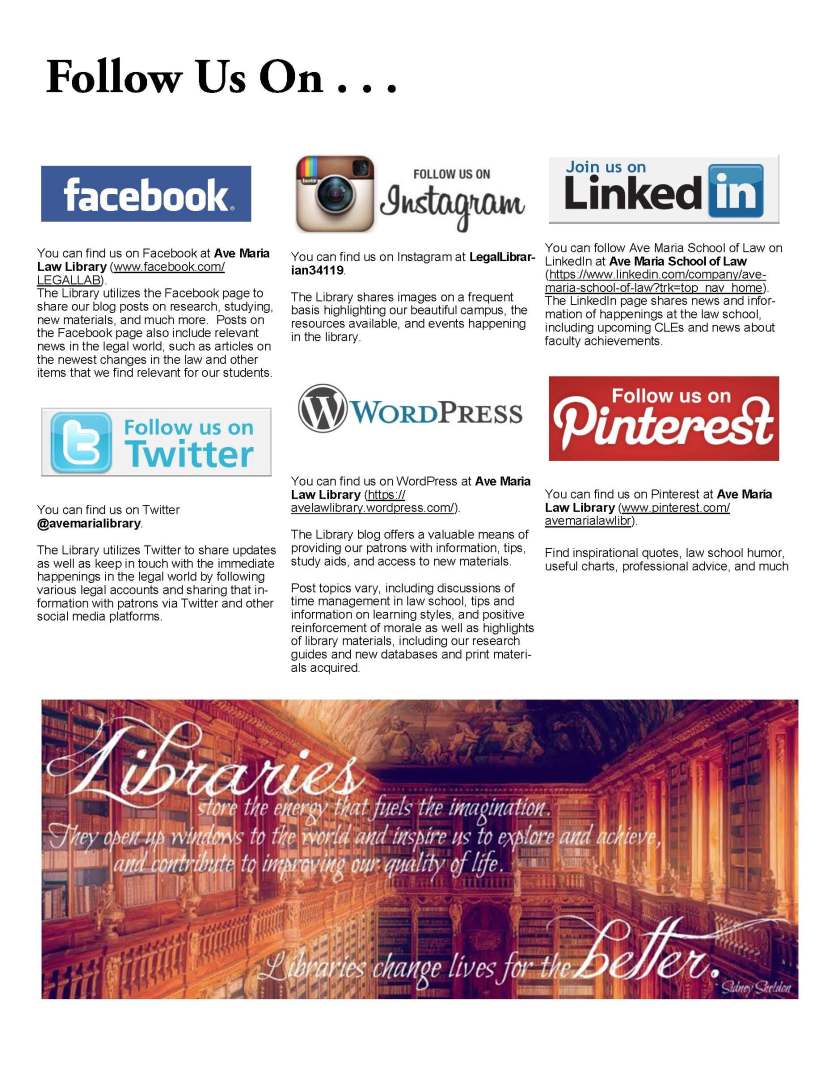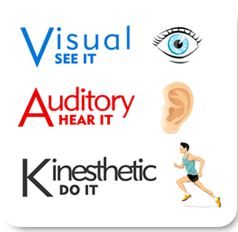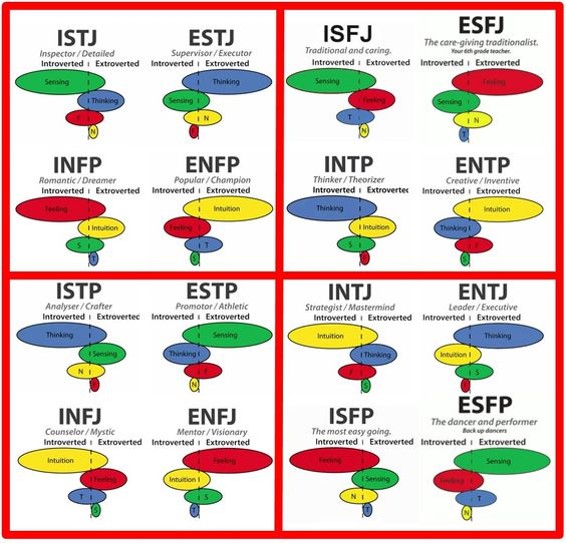



Newsletter – Fall 2016








Yesterday, we took a brief look at learning styles and MBTI personalities. At the workshop, students encountered the three major learning styles and were introduced to the 16 different MBTI personality types.
First, students watched a video on thinking fast and thinking slow, which delved into the concepts of the conscious vs. the subconscious mind. You can watch it here: Brain Tricks – This Is How Your Brain Works.
 Students then learned about the three major learning styles: auditory; visual; kinesthetic. The presentation discussed the differences between them, including a video demonstrating such differences. We discussed how the learning styles differ when applied to the study of law. Visual learners learn best when information is presented in a written language or via pictures or diagrams. Auditory learners learn best when information is presented in a spoken language format. Kinesthetic learners learn best when they can use their sense of touch and move about.
Students then learned about the three major learning styles: auditory; visual; kinesthetic. The presentation discussed the differences between them, including a video demonstrating such differences. We discussed how the learning styles differ when applied to the study of law. Visual learners learn best when information is presented in a written language or via pictures or diagrams. Auditory learners learn best when information is presented in a spoken language format. Kinesthetic learners learn best when they can use their sense of touch and move about.
In practical application, these learning styles are not set in stone. While people tend to have a preference for one style over another, they can develop all of the learning styles. This makes studying etc. much more effective.
You can find out your learning style by taking any one of these tests:
Seguing from learning styles to personality types, Dr. Brosseit spoke on “Using Psychological Type Theory to Optimize Performance in the Study and Practice of Law.” He began with a few important points:
Dr. Brosseit went on to discuss the differences between the four dichotomies that make up the MBTI: Direction of Energy (E vs. I); Perception (S vs. N); Judgment (T vs. F); and Lifestyle Orientation (J vs. P).
Dr. Brosseit mentioned an intriguing chart that displayed the different MBTI types and what their primary vs. secondary etc. functions were. Of note, extroverts extravert their primary function while introverts extravert their secondary function. This means that extroverts continually show their best function to the world while introverts show their second best. Knowing this, an introvert can work at overcoming this tendency.

 Dr. Brosseit also looked into how the MBTI types are distributed amongst lawyers. Of note, the top six types found in lawyers are:
Dr. Brosseit also looked into how the MBTI types are distributed amongst lawyers. Of note, the top six types found in lawyers are:
You may notice that the top six types are all of the (T) variety. This does NOT mean that Feelers cannot be successful lawyers. It simply means that the (T) type is more prominent in the legal community.
If you don’t know your MBTI type, check out this free unofficial MBTI indicator. We recommend that you take it a few times or take a few different indicators in order to best know your MBTI type.
If you’re interested in how your psychological type can help you as a law student and future attorney (or as an attorney already), check out this book: Juris Types: Learning Law through Self-Understanding by Martha M. Peters & Don Peters. This book looks into things such as study approaches, organization methods, exam preparation strategies, exam taking techniques, strategies for legal practice, and much more!
We hope you found this information as fascinating and useful as we did! Knowing your learning style and, more importantly, your MBTI type can help you learn and study more efficiently and effectively; however, this knowledge goes beyond law school. Learning about who you are and how you think and act and why as well as why other people around you act the way they do can mean the difference between happiness and misery in your life.
We have just entered the second week of the Fall semester here, and the students are settling back into their normal routine. The 3Ls vacillate between wondering for the millionth time why they decided law school was a good idea and chomping at the bit to be done with school so that they can tackle the Bar Exam, succeed, and join the ranks of United States attorneys. The 2Ls are adjusting to the faster pace of upper-level classes and wondering how they’ll manage to fit everything in as they stare at the pile of books and the hundreds of assignments on top of participating more actively on the Executive Boards of all the extra-curricular organizations and clubs that the 3Ls have passed on. The 1Ls are either still in shock over how different law school is from any other educational experience they’ve ever had or they’re focusing on getting through the readings and the classes one day at a time so that they don’t hyperventilate. Unless they’re smart enough to realize that they are capable and that they will conquer the beast that is law school through practice and perseverance.
Here at the library we’ve been giving tours to the 1Ls all week as we introduce them to the incredible resources available at the tip of their fingers. As we speak with each group, we try to convey our love of learning and our eagerness to help them succeed in any way we can. One point that we all emphasize is how important human resources are — that the librarian and the reference assistant are your most valuable assets when you enter a library. As you struggle through your first research assignment and feel overwhelmed by the sheer amount of information available, don’t forget that you can ask your librarian or your library workers for help. Rather than beating your head against a wall until it breaks, ask for help, and the librarian can guide you to the gate through the wall into the realm of answers.
Aspiring to holiness one sanctification at a time through the vocation of motherhood.
WSJ on the cases, trends and personalities of interest to the business community.
Making the most of your experience as a law student
A Legal Web Site – News, Insights, and Opinions on Law Firms, Lawyers, Law School, Law Suits, Judges and Courts
A library is not a luxury but one of the necessities of life.